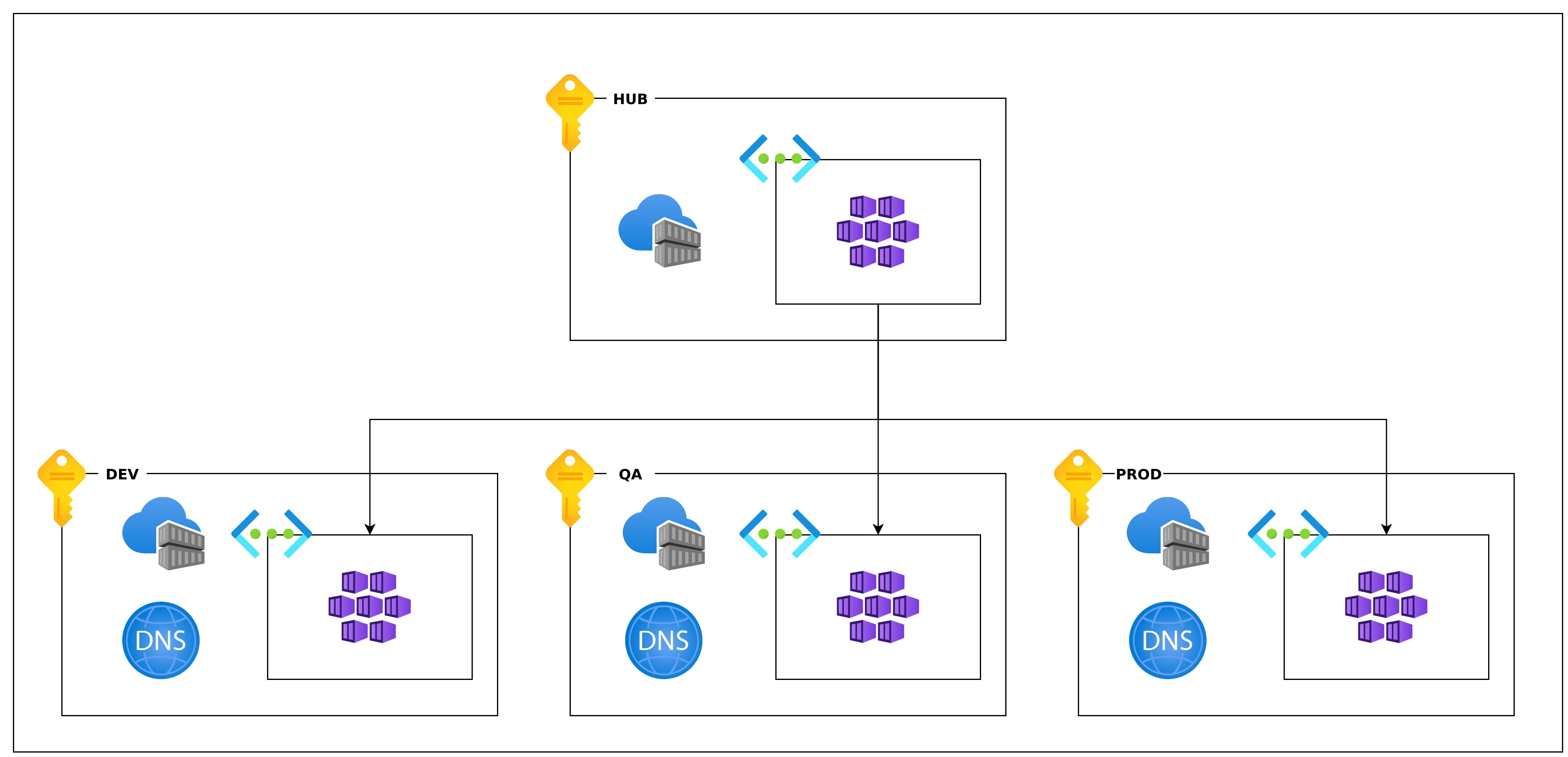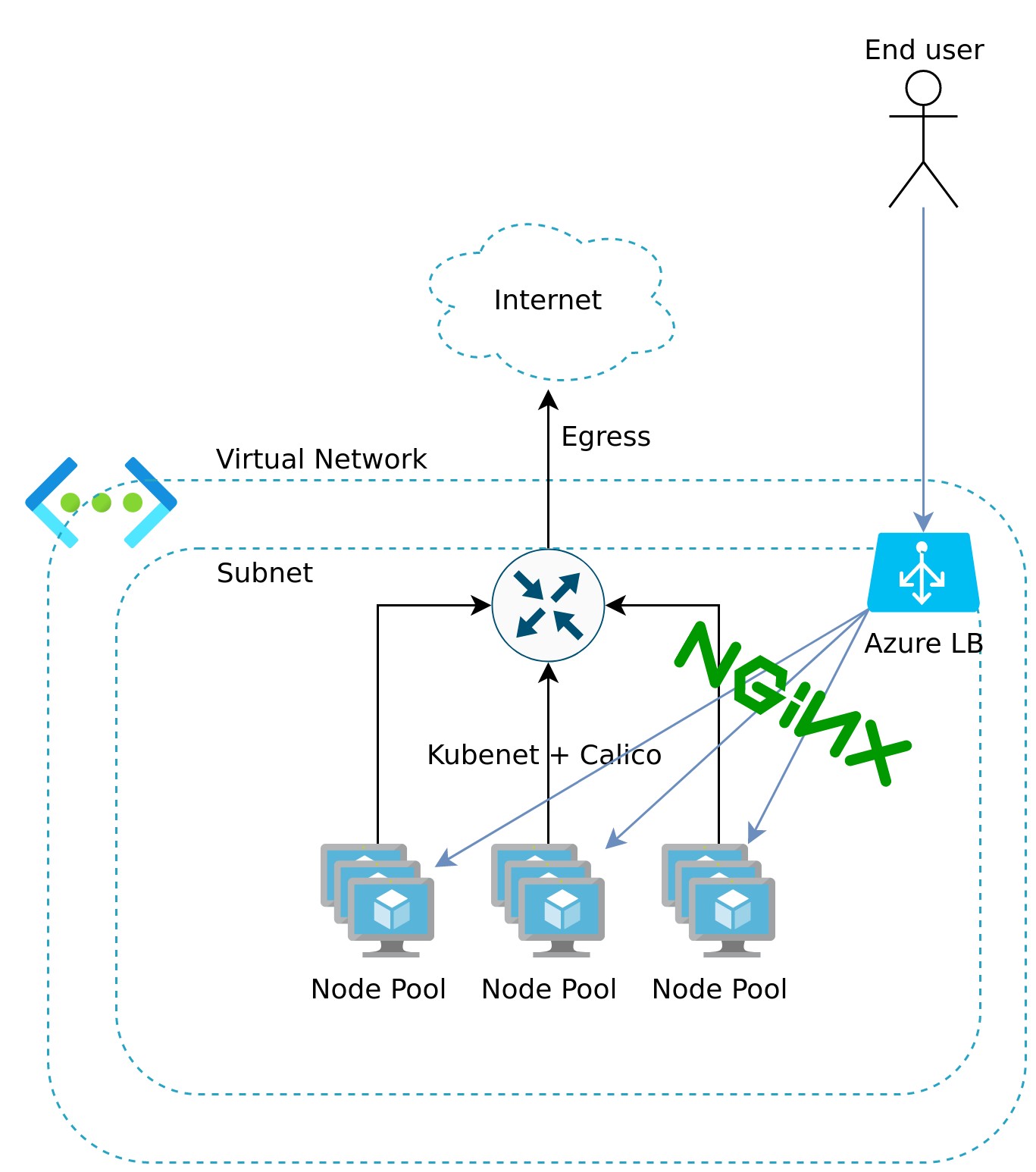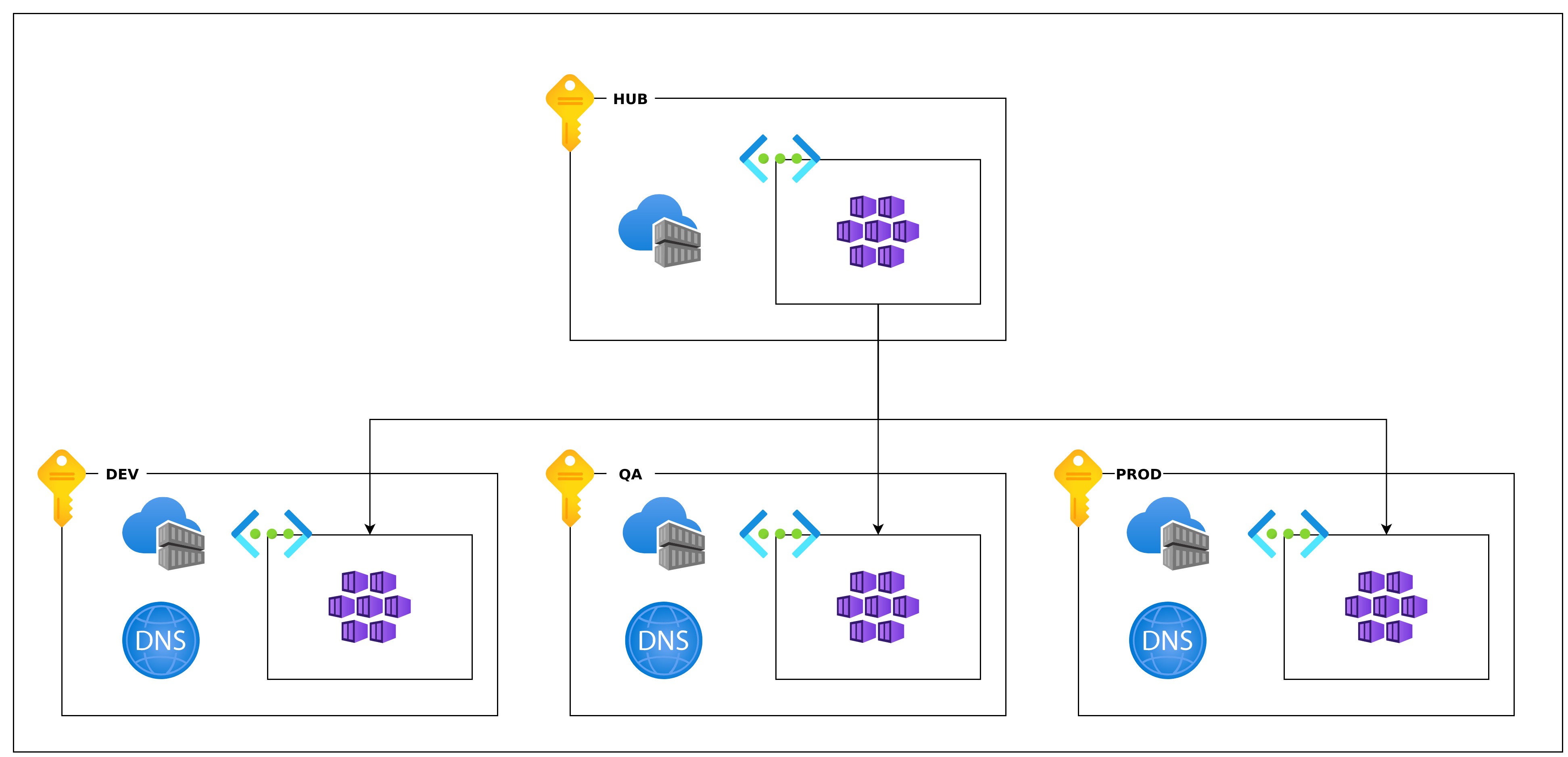Overview
Xenit Kubernetes Service (XKS) is an opinionated Kubernetes deployment on a public cloud provider's managed Kubernetes service. It combines a cloud provider's managed Kubernetes offering and ancillary services with additional configuration and services that run on top of Kubernetes.
Architecture
XKS is set up from a set of Terraform modules that when combined creates the full XKS service. There are multiple individual states that all fulfill their own purpose and build upon each other in a hierarchical manner. The first setup requires applying the Terraform in the correct order, but after that ordering should not matter. Separate states are used as it allows for a more flexible architecture that could be changed in parallel.

Network diagram
Looking at a cluster, the simple network diagram looks like this:

Terraform modules
The following Terraform modules are used in XKS.
Governance
Governance is split into global and regional, it handles the creation and delegation of Azure Resource Groups, Azure KeyVaults, Azure AD groups, Service Principals and resources like that.
Core
Core sets up the main network for an environment.
Hub
Hub is setup in the production subscription and is used for things like Azure Pipelines agents.
AKS
The AKS Terraform contains three modules that are used to setup a Kubernetes cluster. To allow for blue/green deployments of AKS clusters resources have to be split up into global resources that can be shared between the clusters, and cluster specific resources.
The aks-global module contains the global resources like ACR, DNS and Azure AD configuration.
The aks and aks-core modules create a AKS cluster and configures it. This cluster will have a suffix, normally a number to allow for temporarily creating multiple clusters when performing a blue/green deployment of the clusters. Namespaces will be created in the cluster for each of the configured tenants. Each namespaces is linked to a resource group in Azure where namespace resources are expected to be created.
